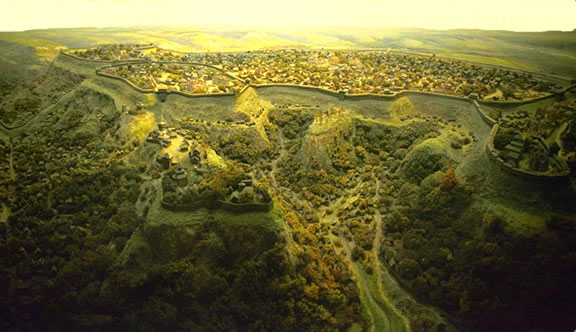Succession
Toward Harmonious and Stable Co-Existence
by V.I. Postnikov
Loitering the central streets of my native town, Kiev, where I had lived for 63 years, I involuntarily examine the passers-by. Gosh, how changed the appearance of citizens! I notice some subspecies that I never met before — such as a subspecies of managers — short- haired young people in white shirts, a subspecies of guards — stern-looking lads with bull’s napes, a subspecies of builders — lads from other towns. The old age people are rarely seen on the streets. I peer at the faces, hoping to recognize familiar ones. But no, no way, they are all long gone. The species, the environment have changed irrevocably. Sad, but true.
haired young people in white shirts, a subspecies of guards — stern-looking lads with bull’s napes, a subspecies of builders — lads from other towns. The old age people are rarely seen on the streets. I peer at the faces, hoping to recognize familiar ones. But no, no way, they are all long gone. The species, the environment have changed irrevocably. Sad, but true.
In ecology, there is the concept of “succession,” an important term which explains serial mutability of a species and its habitat. William R. Catton, Jr., in his classic book Overshoot, shows how this principle works in the human environment [1]. To understand the succession in human society, it is useful to first consider nature’s succession. (more…)
 I’m using Mary Daly’s terminology here: she calls everything that mainstream society generally focuses on part of the “foreground,†which distracts us from the deeper and more significant issues and events going on in the “background.â€
I’m using Mary Daly’s terminology here: she calls everything that mainstream society generally focuses on part of the “foreground,†which distracts us from the deeper and more significant issues and events going on in the “background.â€ between its legs, it declares victory every time. And, depending on how you define victory, it certainly leaves lasting effects. The cancer and birth defects and poisoned water supplies bear witness: there was an occupation here.
between its legs, it declares victory every time. And, depending on how you define victory, it certainly leaves lasting effects. The cancer and birth defects and poisoned water supplies bear witness: there was an occupation here. illusion. Expansion über alles! That’s our species’ birthright, and rightful destiny.
illusion. Expansion über alles! That’s our species’ birthright, and rightful destiny. Maybe that’s protection, insulation. Really, how could we approach each day if we knew at the molecular level the agony of bereavement?
Maybe that’s protection, insulation. Really, how could we approach each day if we knew at the molecular level the agony of bereavement? Will it be possible to perform a “surgical strike†in Syria, preventing the government armed forces from using chemical weapons without actually taking sides in the civil war?
Will it be possible to perform a “surgical strike†in Syria, preventing the government armed forces from using chemical weapons without actually taking sides in the civil war? labor with great success. We’ve become dependent on carbon fuels. Coal and oil companies have spent millions to make sure that it stays that way.Â
labor with great success. We’ve become dependent on carbon fuels. Coal and oil companies have spent millions to make sure that it stays that way. 